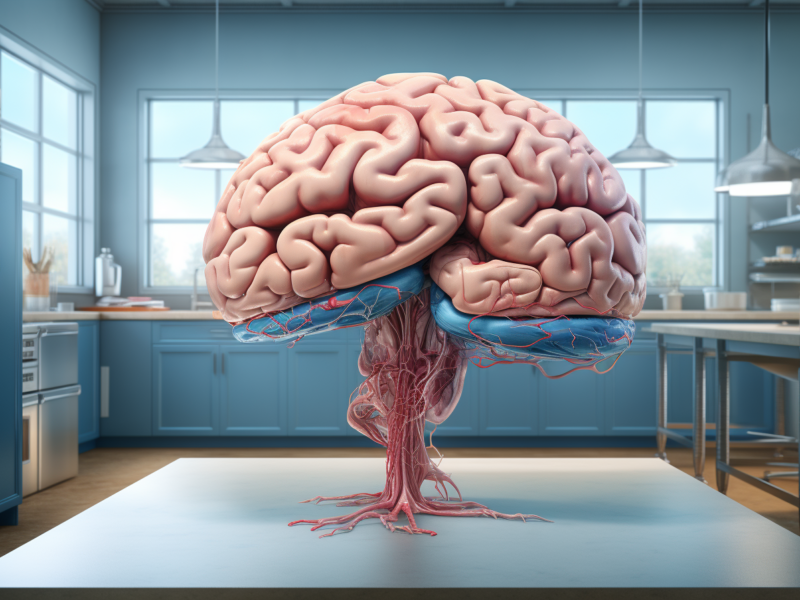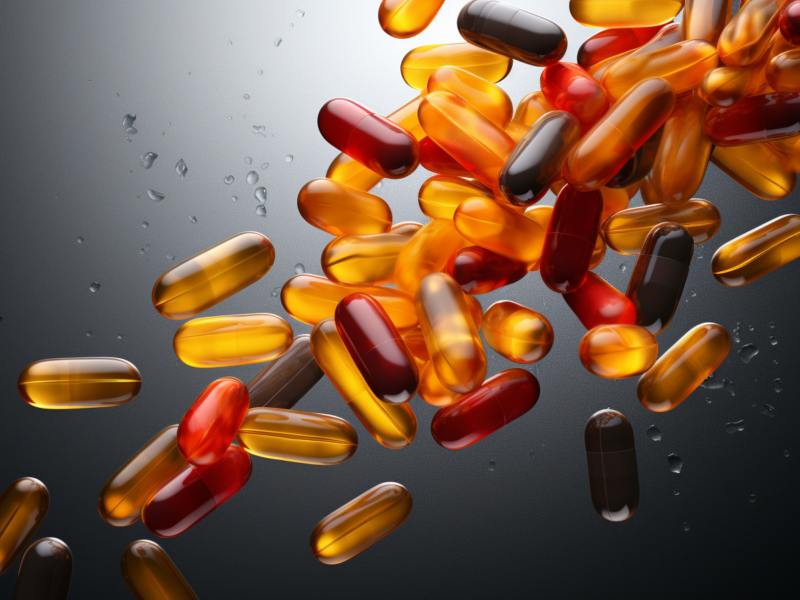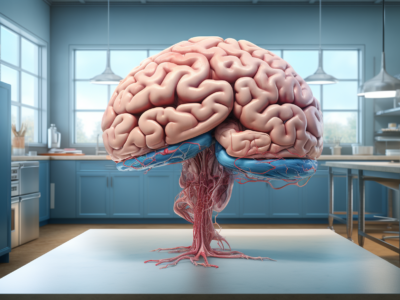Vitamin B is a group of essential nutrients that are critical for maintaining brain health and proper cognitive function. As one of the most important vitamins needed by the body, Vitamin B plays a crucial role in supporting vital processes such as red blood cell formation, DNA synthesis, and healthy nerve function – all of which are necessary components for optimal brain performance. In this article, we’ll dive into what exactly each type of vitamin B contributes to overall cognitive health. We will examine how deficiencies can harm brain function, explore ways to boost Vitamin-B levels naturally through food sources as well as discuss when vitamin supplements may be required for better results. So let’s get started!
Vitamin B1: Thiamine and Brain Health
Thiamine, also known as Vitamin B1, is a critical nutrient that plays an essential role in maintaining proper brain health.

As with other B vitamins, Thiamine cannot be produced by the body and must be obtained through dietary sources or supplements.
Thiamine is involved in several biochemical processes related to cognitive function such as glucose metabolism, neurotransmitter synthesis, and nerve signal conduction. A deficiency of Thiamine can lead to a range of neurological symptoms including confusion, memory loss, and mood disorders.
Chronic alcohol consumption can lead to decreased levels of this vital nutrient resulting in Wernicke-Korsakoff syndrome – a severe form of thiamine deficiency characterized by severe mental impairment. Additionally, research suggests that adequate intake of Thiamine may help protect against age-related cognitive decline and even Alzheimer’s disease. Foods rich in Vitamin B1 include beef liver, pork chops, whole grains like brown rice and oats as well as beans such as lentils. It is important to ensure you are consuming enough dietary sources or taking supplements if needed for optimal brain performance.
The Role of Vitamin B2: Riboflavin in Cognitive Function
Vitamin B2, also known as Riboflavin, plays a critical role in cognitive function. It is essential for energy metabolism and the production of ATP, which is necessary for proper brain function. A deficiency in Vitamin B2 can lead to various cognitive impairments such as memory loss and difficulty concentrating.
Furthermore, studies have shown that Vitamin B2 may have neuroprotective properties by reducing oxidative stress and inflammation in the brain. This protects neurons from damage caused by free radicals and other harmful compounds. Additionally, Vitamin B2 has been found to improve mood and reduce symptoms of depression.
To ensure optimal cognitive health, it is important to consume adequate amounts of Vitamin B2 through diet or supplements. Good sources include dairy products, eggs, meat, green leafy vegetables and whole grains. However, supplementation may be necessary for those who have difficulty meeting their daily requirements or have absorption issues due to certain medical conditions.
Niacin and Brain Health: What You Need to Know
Niacin, also known as Vitamin B3, is an essential nutrient required for good brain health and cognitive function. It’s involved in energy metabolism and helps to maintain the structure and function of nerve cells in the brain. Niacin is particularly important for memory formation, information processing, and attention span.
A deficiency in niacin may lead to neurological symptoms such as confusion, irritability, depression, mood swings, headaches or fatigue. In severe cases it could even cause a condition called pellagra which can appear with dermatitis (skin rash), dementia-like symptoms and diarrhea.
To ensure optimal brain performance it’s crucial to obtain adequate levels of niacin by including food sources high in this vitamin such as chicken breasts or thighs cooked without skin (16-19mg per 100g) pork chops roasted lean (10-12 mg per 100g), tuna canned in water (8. 5mg eat half a cup). Alternatively supplements are available but should be taken under consultation with your Doctor due to potential interactions with medication you may be taking already.
Vitamin B6: Pyridoxine and Its Impact on Cognitive Performance
Vitamin B6, also known as pyridoxine, is an essential nutrient for maintaining cognitive performance. This vitamin helps to produce neurotransmitters that regulate mood and as a result can improve memory and concentration. Additionally, Vitamin B6 assists in the process of converting food into energy which provides fuel for the brain to function optimally.
 A deficiency in Vitamin B6 can lead to symptoms including irritability, confusion and depression due to its impact on neurotransmitter production. Supplementation or incorporating foods high in Vitamin B6 such as salmon, turkey or bananas may be helpful in improving cognitive performance. However, it is important to consult with a healthcare professional before implementing any supplement regimen.
A deficiency in Vitamin B6 can lead to symptoms including irritability, confusion and depression due to its impact on neurotransmitter production. Supplementation or incorporating foods high in Vitamin B6 such as salmon, turkey or bananas may be helpful in improving cognitive performance. However, it is important to consult with a healthcare professional before implementing any supplement regimen.
Ultimately ensuring adequate consumption of this vital nutrient contributes positively towards maintaining overall brain health and cognitive function.
Folate and Brain Function: The Importance of Vitamin B9
Folate, also known as Vitamin B9, is an essential nutrient that plays a significant role in brain function. Folate deficiency has been associated with neurological disorders such as depression and cognitive decline. Adequate intake of folate can improve memory and cognitive performance in older adults as well as reduce the risk of dementia.
Folate acts by regulating homocysteine levels in the body which when high are linked to increased risk for neurodegenerative diseases. It also supports the development of nerve cells and promotes neurotransmitter synthesis, which aids communication between brain cells. Foods rich in folate include leafy greens, legumes, nuts, and fruits such as oranges and strawberries.
In conclusion, maintaining adequate folate levels through diet or supplementation is crucial for maintaining optimal brain health throughout life. The relationship between Vitamin B-complex nutrients and healthy cognition underscores why they have become staples on the shelves of those interested in maximising mental clarity – it truly begins with proper nutrition!
Vitamin B12: Cobalamin and Cognitive Health
Vitamin B12, or cobalamin, is one of the most essential members of the Vitamin B family for cognitive health. The vitamin is primarily found in animal-based food products such as meat and dairy and plays a key role in maintaining healthy nerve function and brain cells. Insufficient levels of Vitamin B12 can lead to anemia, fatigue, depression, confusion, memory loss and other cognitive impairments.
Research studies suggest that adults over 50 years old may benefit from higher doses of Vitamin B12 due to possible decreases in absorption with age. Further research indicates a possible link between low levels of this nutrient and Parkinson’s disease risks later on in life.
For individuals that don’t consume enough animal by-products or have trouble absorbing cobalamin properly through their diet should discuss possible supplementation options with their healthcare professionals.
Overall adequate daily intake will support overall bodily functions necessary for optimal brain performance at any stage in life.

Boosting Your Vitamin B Intake Naturally: Food Sources and Supplements
Vitamin B is a group of nutrients that are essential for maintaining brain health and cognitive function. These vitamins play critical roles in processes such as red blood cell formation, DNA synthesis, and proper nerve function – all necessary components for optimal brain performance. A deficiency in any of the eight types can harm overall cognitive abilities, impacting memory, mood regulation and may lead to depression or anxiety.
To boost Vitamin-B levels naturally you can incorporate food sources like green leafy vegetables, whole grains, nuts and seeds into your diet. Supplements are also an option but should be taken with caution as overdosing on certain types like B3 (Niacin) can cause side effects such as flushing or liver damage. Overall though by increasing your intake of these vitamins both through dietary choices or supplements will ensure better mental functioning, improved energy levels and healthier aging too!



 Vitamin B Supplements for Pregnancy and Fetal Development
Vitamin B Supplements for Pregnancy and Fetal Development
